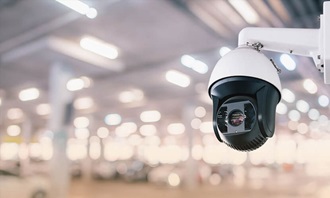The global IP camera market size is expected to reach USD 32.63 billion by 2030, growing at a CAGR of 14.1% over the forecast period, according to a new study conducted by Grand View Research, Inc. The research found that demand for internet protocol (IP)-based camera systems is increasing due to the constant development of infrared cameras and the adoption of IoT in video surveillance. In addition, a growing concern for home security coupled with the rising smartphone user base, and the availability of instalment-based security solution subscriptions, all promise robust growth in the residential market.
Home security concerns are growing along with the connected ability to alert security services, and the comparatively low cost of home security continues to impact the market’s growth positively. These cameras help users respond immediately to any incursions inside buildings, abandonment of suspicious materials, and loitering & trespassing by persons and vehicles, as it also has built-in video intelligence.
IP cameras protect personnel, property, or information as they are employed in various organisations. These are also widely deployed in commercial and residential properties. The spread of Covid-19 globally continues to have a significant impact on the electronics industry as well, resulting in changes in consumer preference over time. The changes in preferences, disposable income, and purchasing habits have added volatility in the global economy. This has led to a degree of uncertainty on the demand side in the internet protocol camera market.
Asia Pacific is anticipated to dominate the global market in 2021 due to increasing awareness and adoption rate of network cameras. The impact of government legislation and investments also continues to boost the market growth in the region. There are several significant component providers in the area which dominates globally. For instance, in 2019, the Chinese police started the installation of new surveillance technology that helps the local authority identify potential suspects by their body language, and demeanour.
The technology used by the Chinese police identifies individuals based on their body shape and movement from around a 50-metre distance. Government officials use advanced technology such as AI-based security solutions that help them improve their surveillance operations.
in terms of actual products, the hardware component has the largest market share in the IP camera industry owing to the technological advancements that make the surveillance camera programmable to features such as zooming in on scam items to identify harmful equipment, and within that, the infrared camera type of product is expected to address the highest market revenue by the end of 2030, according to the analysts. And, it is the distributed connection type that is anticipated to attain a higher CAGR during the forecast period due to its several benefits. This system has the data dispersed throughout, usually close to where it is produced or used.








